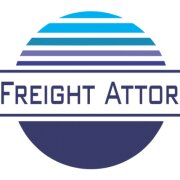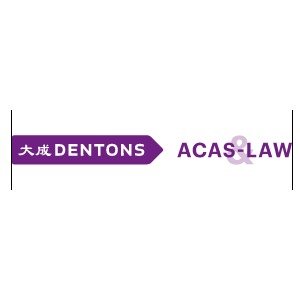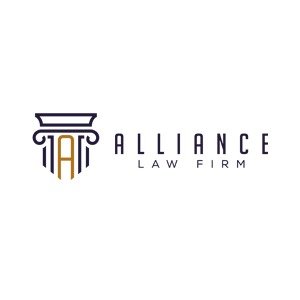Best ESG Advisory & Compliance Lawyers in Port Harcourt
Share your needs with us, get contacted by law firms.
Free. Takes 2 min.
List of the best lawyers in Port Harcourt, Nigeria
About ESG Advisory & Compliance Law in Port Harcourt, Nigeria
ESG stands for Environmental, Social, and Governance, three central pillars that businesses must consider to operate responsibly and sustainably. ESG advisory and compliance law focuses on helping organizations not only comply with national and international regulations but also adopt best practices related to environmental protection, employee welfare, corporate governance, and ethical business conduct. In Port Harcourt, a significant industrial hub, ESG advisory and compliance are gaining prominence as companies face mounting pressure from regulators, investors, and local communities to conduct business responsibly. ESG legal advisory helps firms navigate these challenges while harnessing opportunities for sustainable growth and increased stakeholder trust.
Why You May Need a Lawyer
A lawyer specializing in ESG advisory and compliance can provide essential guidance and support in various situations, including:
- Compliance with Nigerian environmental, labor, and governance regulations
- Advising on legal risks and obligations associated with ESG matters
- Assisting in drafting and reviewing sustainability reports and disclosures
- Responding to regulatory investigations or enforcement actions
- Integrating ESG factors into corporate policies, contracts, and business operations
- Managing stakeholder communications, particularly during crisis situations
- Helping with due diligence in mergers, acquisitions, and investments
- Litigation or dispute resolution related to ESG breaches or non-compliance
Seeking legal advice early can help prevent costly violations, reputational damage, and operational disruptions.
Local Laws Overview
In Port Harcourt, ESG compliance is shaped by a combination of Nigerian federal laws, state regulations, and international standards. Key legal frameworks include:
- The Environmental Impact Assessment Act and associated guidelines, administered by the Federal Ministry of Environment and the Rivers State Ministry of Environment
- The Companies and Allied Matters Act (CAMA), which sets corporate governance standards
- The Nigerian Labour Act, regulating employee rights and workplace practices
- Laws and guidelines issued by the National Environmental Standards and Regulations Enforcement Agency (NESREA)
- Local content requirements, especially in oil and gas, overseen by the Nigerian Content Development and Monitoring Board (NCDMB)
- Anti-corruption and transparency laws enforced by agencies like the Economic and Financial Crimes Commission (EFCC)
International ESG frameworks, such as the UN Sustainable Development Goals and global reporting initiatives, are also increasingly referenced by regulators and investors, especially for companies with international exposure.
Frequently Asked Questions
What is the importance of ESG compliance in Port Harcourt?
ESG compliance helps businesses in Port Harcourt avoid legal penalties, build investor confidence, meet regulatory expectations, and enhance their public image. It is also crucial for accessing international markets and funding.
Which sectors face the most scrutiny for ESG issues in Port Harcourt?
The oil and gas, manufacturing, construction, and logistics sectors face significant ESG scrutiny due to their impact on the environment and local communities.
Are ESG disclosures mandatory for Nigerian companies?
While some ESG disclosures are required by sector regulators, especially in extractive industries, broader mandatory reporting is gradually being adopted, particularly for public companies under the Companies and Allied Matters Act.
What are the penalties for ESG non-compliance?
Penalties for ESG non-compliance may include fines, operational shutdowns, revocation of licenses, and criminal prosecution, depending on the nature and severity of the violation.
How can businesses identify ESG risks?
Businesses can conduct ESG risk assessments, seek specialized legal and advisory services, and monitor compliance with relevant laws and standards in order to identify and manage risks effectively.
Are there local environmental regulations in addition to national laws?
Yes, the Rivers State Ministry of Environment enforces additional environmental regulations which can affect operations in Port Harcourt. Both federal and state laws must be considered for full compliance.
Can ESG compliance give a competitive advantage?
Yes, companies with strong ESG practices often attract better investment opportunities, enjoy improved community relations, and have a competitive edge in both local and international markets.
How does ESG law impact small and medium enterprises (SMEs)?
ESG laws apply to all businesses, though requirements may vary by sector and size. SMEs can benefit from proactive ESG compliance through risk reduction and enhanced reputation.
What role does governance play in ESG compliance?
Good governance ensures that organizations have the right policies, practices, and accountability structures to achieve ongoing ESG compliance and ethical business operations.
Do international clients require Nigerian companies to follow ESG standards?
Many international clients insist on ESG compliance as a condition for partnership or supply, referencing global frameworks in addition to Nigerian laws.
Additional Resources
Below are important resources and organizations for ESG advisory and compliance in Port Harcourt, Nigeria:
- Federal Ministry of Environment
- Rivers State Ministry of Environment
- National Environmental Standards and Regulations Enforcement Agency (NESREA)
- Nigerian Content Development and Monitoring Board (NCDMB)
- Securities and Exchange Commission (for listed companies)
- Nigerian Bar Association, Port Harcourt Branch (for finding ESG lawyers)
- Local industry associations, such as the Port Harcourt Chamber of Commerce
Next Steps
If you need legal assistance with ESG advisory and compliance in Port Harcourt, consider the following steps:
- Clearly define your ESG-related legal needs or challenges
- Gather relevant documents, contracts, and regulatory correspondence
- Identify law firms or lawyers in Port Harcourt who have experience in ESG matters
- Schedule a consultation to discuss your situation and possible solutions
- Ask about the lawyer's experience with local and international ESG laws
- Evaluate the recommended approach and consider seeking a second opinion if needed
- Plan for regular compliance reviews and legal updates to stay ahead of regulatory changes
Taking a proactive approach with qualified legal help will provide you with confidence and clear guidance as you navigate ESG obligations in Port Harcourt, Nigeria.
Lawzana helps you find the best lawyers and law firms in Port Harcourt through a curated and pre-screened list of qualified legal professionals. Our platform offers rankings and detailed profiles of attorneys and law firms, allowing you to compare based on practice areas, including ESG Advisory & Compliance, experience, and client feedback.
Each profile includes a description of the firm's areas of practice, client reviews, team members and partners, year of establishment, spoken languages, office locations, contact information, social media presence, and any published articles or resources. Most firms on our platform speak English and are experienced in both local and international legal matters.
Get a quote from top-rated law firms in Port Harcourt, Nigeria — quickly, securely, and without unnecessary hassle.
Disclaimer:
The information provided on this page is for general informational purposes only and does not constitute legal advice. While we strive to ensure the accuracy and relevance of the content, legal information may change over time, and interpretations of the law can vary. You should always consult with a qualified legal professional for advice specific to your situation.
We disclaim all liability for actions taken or not taken based on the content of this page. If you believe any information is incorrect or outdated, please contact us, and we will review and update it where appropriate.

















